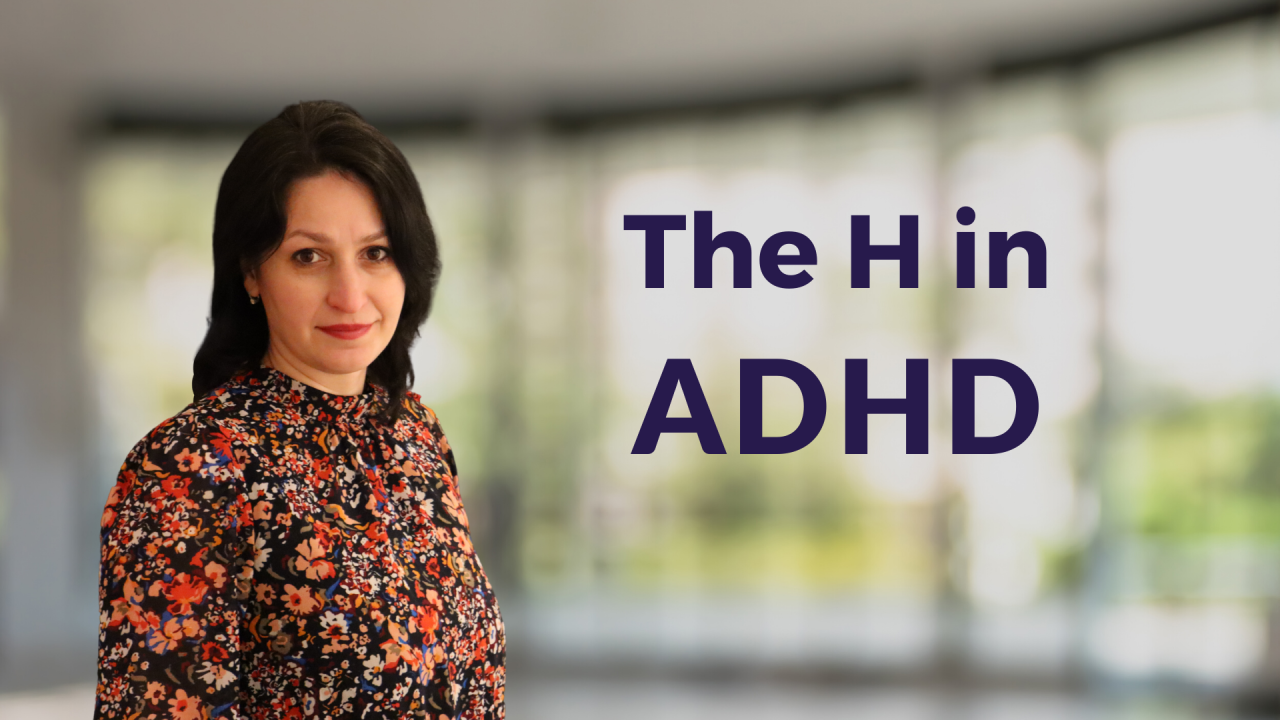
This month, I have been writing to you about ADHD and the different ways it shows itself.
People affected by ADHD suffer from a dysregulation of the brain’s dopamine system… maybe their brains are not producing enough dopamine, or they are not processing it properly, or it is being wasted.
In the end, the effect is very detrimental to executive functioning – focus, time management, and productivity can be difficult for these people. This is the “Attention Deficit” part of ADHD.
Today, I want to talk about the H – “Hyperactivity.”
We are familiar with this effect in children, especially in their school days. We see them fidget in class; we find them restless and we see them displaying more activity than their peers.
The same is true of adults struggling with ADHD. They may flit from place to place, pick up items, or talk excessively. They may have trouble slowing down their minds long enough to fall asleep.
These things sound inconvenient, but they are just some of the ways hyperactivity displays.
Hyperactivity can make sufferers of ADHD prone to emotional outbursts; it often puts them at greater risk for accidents, and can even profoundly affect their professional lives. Because they get bored quickly, they may change jobs or switch schools regularly, making progress very difficult…
Sounds frustrating, doesn’t it?
It certainly was for one of my patients. People often come to me with complaints or concerns. But for this patient, not one thing in her life was going right.
She felt caught between two opposite issues… she was constantly exhausted, but always felt the need to be going, going, going. She was totally drained but at the same time she could not slow down.
Her mind was so busy that she had to express it by moving, which distracted her, or interrupt it by snacking, which distressed her. She could not get her mind to pause long enough to get anything done!
Why?
Dopamine is the brain’s “reward” chemical – and the dysregulation of dopamine that comes with ADHD causes sufferers to constantly be seeking out new “rewards.”
In the short-term, that means seeking out stimulation all the time, whether that is a sound, a sensation, or a snack. With this never-ending bombardment of sensory input, people affected by ADHD find themselves suspended between saturation and dissatisfaction. They feel somehow empty, but they also feel overwhelmed.
In the long-term, it means looking for the “next exciting thing” all the time. It means getting bored quickly at a job and switching, only to get bored again. It means taking up and giving up on new hobbies; it means starting new endeavors and abandoning them; it means going all over the place, but at the same time, going nowhere… all the while, wondering what is wrong.
But, there is hope.
If this email has resonated with you, talk to your doctor about your options. There are behavioral strategies that help you work with your unique brain instead of against it.
And if you know someone who has this problem, let them know you see them – let them know that there is a name for what ails them, and a way forward with it.
Send them this link and invite them to join this list, as I’ll be offering some insights for coping with ADHD in the next message.
Make today your masterpiece!
Florina
Get My Blog Posts Right in Your Inbox Every Week
Make your mental health a priority. Receive tips and strategies for living well – mentally, physically, and emotionally – every week.
Get My Free Guide: 7 Cheap, Simple Strategies for Boosting Your Brain Performance
Better focus – clearer memory – faster cognition – more mental clarity – improved intellect…
Your brain is capable of beautiful things. If you don’t think you’re getting the most out of your cranial supercomputer, you can reap the benefits of these 7 simple strategies for the low, low price of “free.”